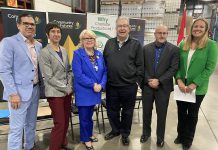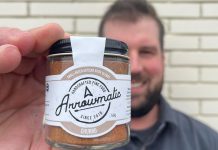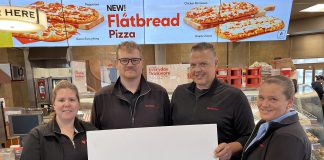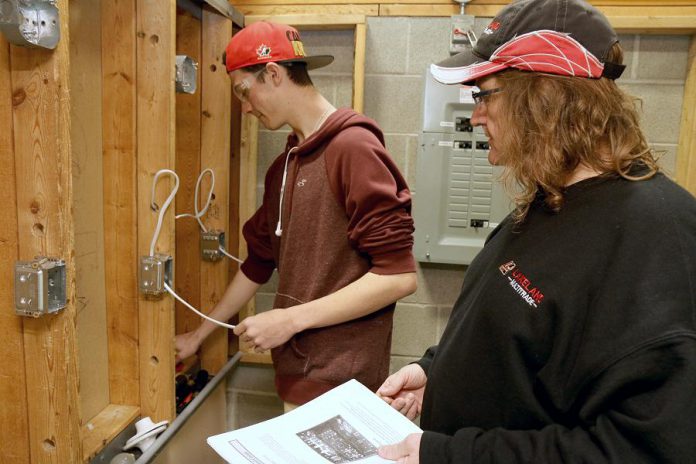
It’s not every 17-year-old who can say he knows what he will be doing for the rest of his life, but Zack Dingwall can: he is on his way to becoming an electrician. By the time he graduates from high school, he will have his Level 1 training completed.
Zack is one of 21 secondary students with the Peterborough Victoria Northumberland and Clarington Catholic District School Board (PVNC) who were successful in entering the accelerated path of the Ontario Youth Apprenticeship Program (OYAP).
OYAP replaces Grade 12 with college training in one of a number of trades. Students still graduate with their peers and receive the Ontario Secondary School Graduation Diploma, but they also receive certification as a Level 1 apprentice.
“This was a way to get my foot in the door,” says Zack, a Grade 12 student at St. Stephen Catholic Secondary School in Bowmanville. “I always loved building, always loved making things with my hands.”
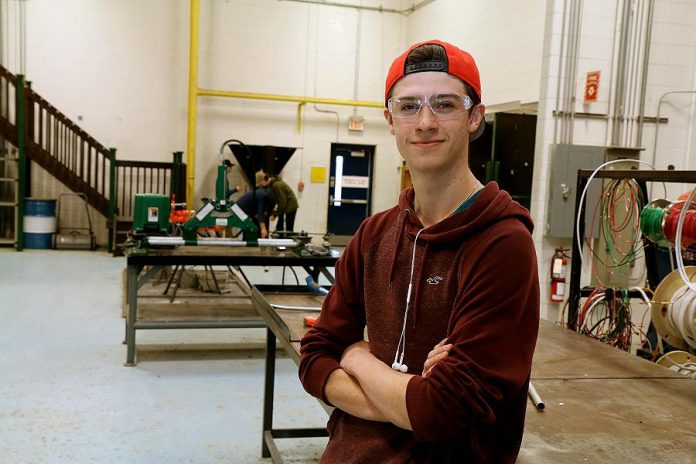
Now, Zack spends two days a week at Durham College’s Whitby Trade Centre learning how to be an electrician and making good connections for the future, while he trains on the job the other three days of the week. After completing his Level 2 and 3 training and passing his Certificate of Qualification exam, Zack will be a licensed electrician at age 22.
“Basically Zack is fast-tracking his education,” says PVNC’s student success consultant Margaret Murray, adding that OYAP is a good option for students who are committed to studying and applying themselves. “It’s a great way to get into a trade.”
Not only do students graduate high school with their Level 1 trade certification, but they can bypass the time and expense of college by moving straight into their Level 2 and 3 training in the workforce.
That’s what appealed to Cheyenne Snache, who completed Grade 12 at Holy Cross Catholic Secondary School in Peterborough last year, but chose to come back for one more year to learn how to be an auto service technician. She admits she faced pressure to go to college, but the expense and the time commitment were a hurdle; OYAP offered another option.
“It was the flexibility that drew me,” she says, adding that she knows her choice of auto service technician is untraditional. “People were shocked at my choice, but happy once they knew I was going to get my Level 1 before really finishing high school.”
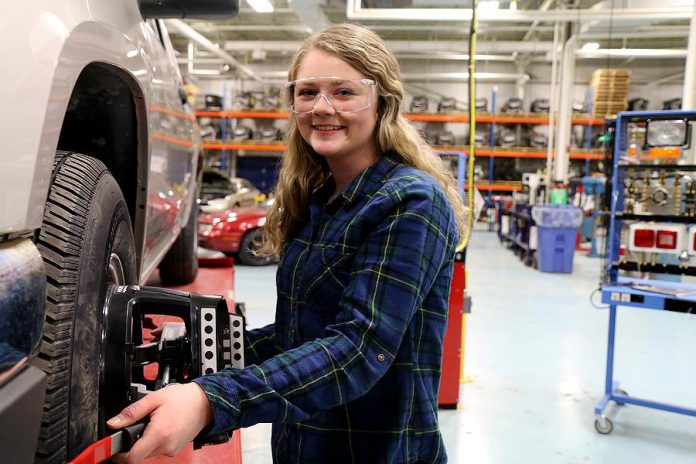
One of Cheyenne’s teachers is Wayne McDonald, an industry-qualified instructor at Durham College. He says some of the students who enter the auto service technician program have never even driven a car, let alone fixed one. He says the value of the OYAP program goes beyond the “fast-tracking” factor.
“It’s the skills they learn,” he says. “Whether or not they make a life as an auto mechanic, they know how to change their own tires, do their own oil changes.”
Of course, when they graduate they are also prepared for their Level 2 apprenticeship.
“There are jobs for Level 2 apprentices,” McDonald says.
Entry to the program is based on grades and an interview, along with the number of placements available. Some, like electrical, are more competitive than others.
PVNC is one of five school boards that participates in the OYAP program offered through Durham College. For the current year, administrators received 95 applications for 20 electrical seats.
On average, there are 20 spots per program and candidates from all five boards are interviewed by industry journeymen and college instructors as part of the selection process.
This year, students will also take a math aptitude assessment as part of the selection process, as the demand for strong math skills is a prerequisite for success in the trades according to Murray.
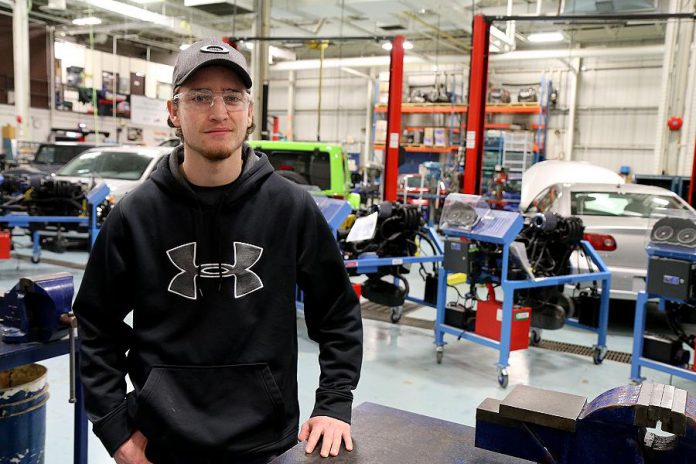
Daymeon Robitaille, 18, isn’t surprised; he says he finds the book work in his program hard, and agrees that math would be good preparation. One benefit of OYAP, he says, is the ability to apply the book learning to the real world, almost in real time.
“We can see the next day what we were learning about the night before,” he says.
The other benefit, he adds, is the ability to study together in a group, to work out the problems together.
Daymeon has a dream of owning his own auto shop, and offering an after-hours do-it-yourself program with a licensed mechanic on hand to help. He says it would be a lower-cost alternative for people who can’t afford mechanics’ fees.
Whether it’s Daymeon’s dream of running his own shop, Cheyenne’s dream of being in control of her future, or Zack’s hope of being able to support a family at a young age, Murray says the OYAP program is a steppingstone to the future.
“For students who are keen on a trade, or who want to commit to a thorough investigation of a trade, this can be the best option,” she says.
Transportation and books are covered, and financial support may be available for other costs. The Ministry of Advanced Education and Skills Development funds the regional OYAP program.
For Zack, the future is bright. Not just because he knows how to wire a house, or lay data cabling, but, in his own words, because he’s learned how to think creatively.
“It’s all common sense,” he says. “There is always more than one way to get from A to B. You just have to be creative.”
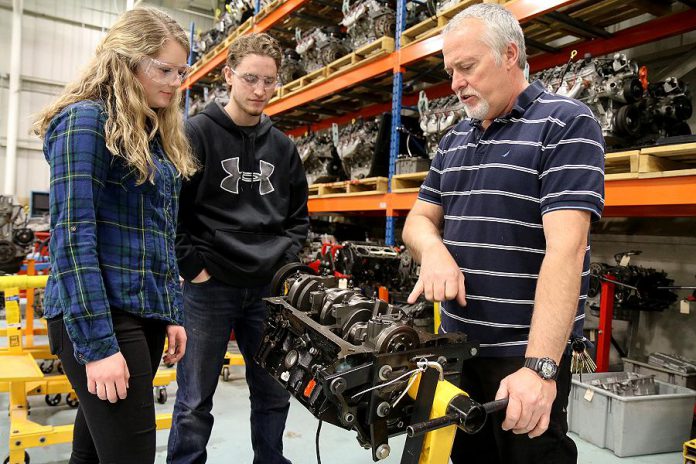
All photos courtesy of the Peterborough Victoria Northumberland and Clarington Catholic District School Board.












